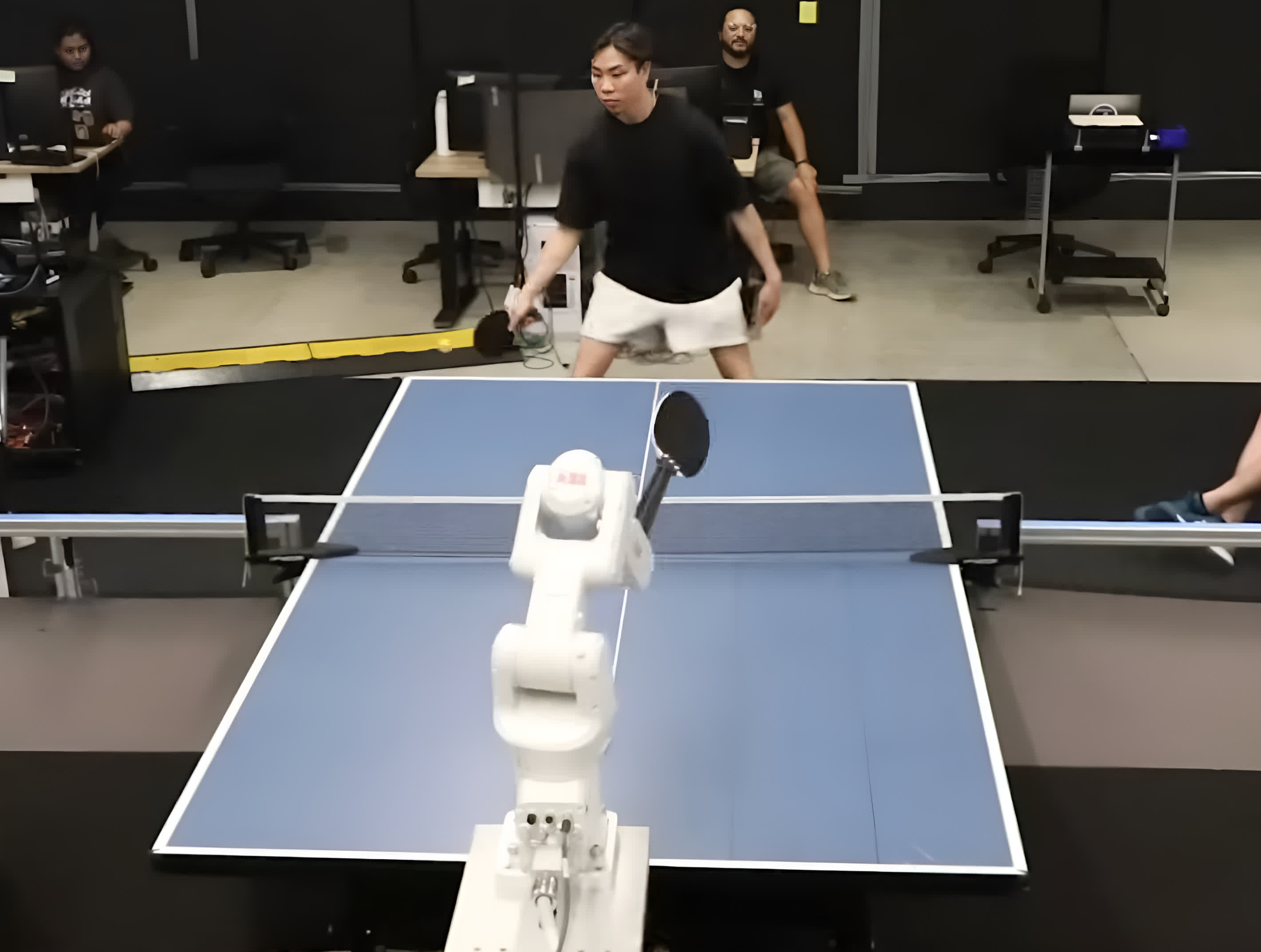Why it matters: Google's AI company DeepMind has developed a robotic arm that can rally with the best of amateur-level table tennis players. It can handle backhands, forehands, a decent amount of spin – and even shots that graze the net – all with remarkable agility.
In a recent research paper, Google subsidiary DeepMind revealed that their robot paddle has beaten amateur-level opponents in full table tennis matches in 13 of 29 games. Granted, it still can't quite hang with the real pros, but being able to reach the amateur skill tier is an impressive feat for an AI system nonetheless.
MIT Technology Review noted that the human players who played against the robot enjoyed the matches. They said it was an engaging challenge that could help elevate their games as a practice partner. The video shows the bot adeptly handling diverse volleys and play styles. It even seems to 'hop' around like a human during a particularly intense game, even though it lacks legs.
"Even a few months back, we projected that realistically the robot may not be able to win against people it had not played before," said Pannag Sanketi, the DeepMind engineer who pioneered the project. "The system certainly exceeded our expectations. The way the robot outmaneuvered even strong opponents was mind blowing."
DeepMind used a two-pronged approach to teach its ping-pong automaton. First, it had the system master its hitting talents through computer simulations mimicking realistic table tennis physics and gameplay. Then, the team fine-tuned those skills by having it learn from real-world data.
During live games, the robot uses a pair of cameras to track the positioning of the ball. It also uses motion capture tech to track its human opponent's movements via an LED-equipped paddle to help identify them and their playing style. All that information is taken and fed back into the simulations, constantly improving tactics through a continuous feedback loop. In other words, it gets better the more games it plays.
The system does have some limitations, though. The robot struggled to return blisteringly fast shots, balls way off the table, or low skidders. It also struggled against players who could put exceptionally great spin on the ball since it cannot measure ball rotation – at least not yet. DeepMind thinks upgraded predictive AI modeling and more intelligent collision detection could help solve those issues.
It seems like a fun project with little practical application. However, the report notes that it represents an important step towards making AI that can perform complex physical tasks safely in natural environments like homes or warehouses.
